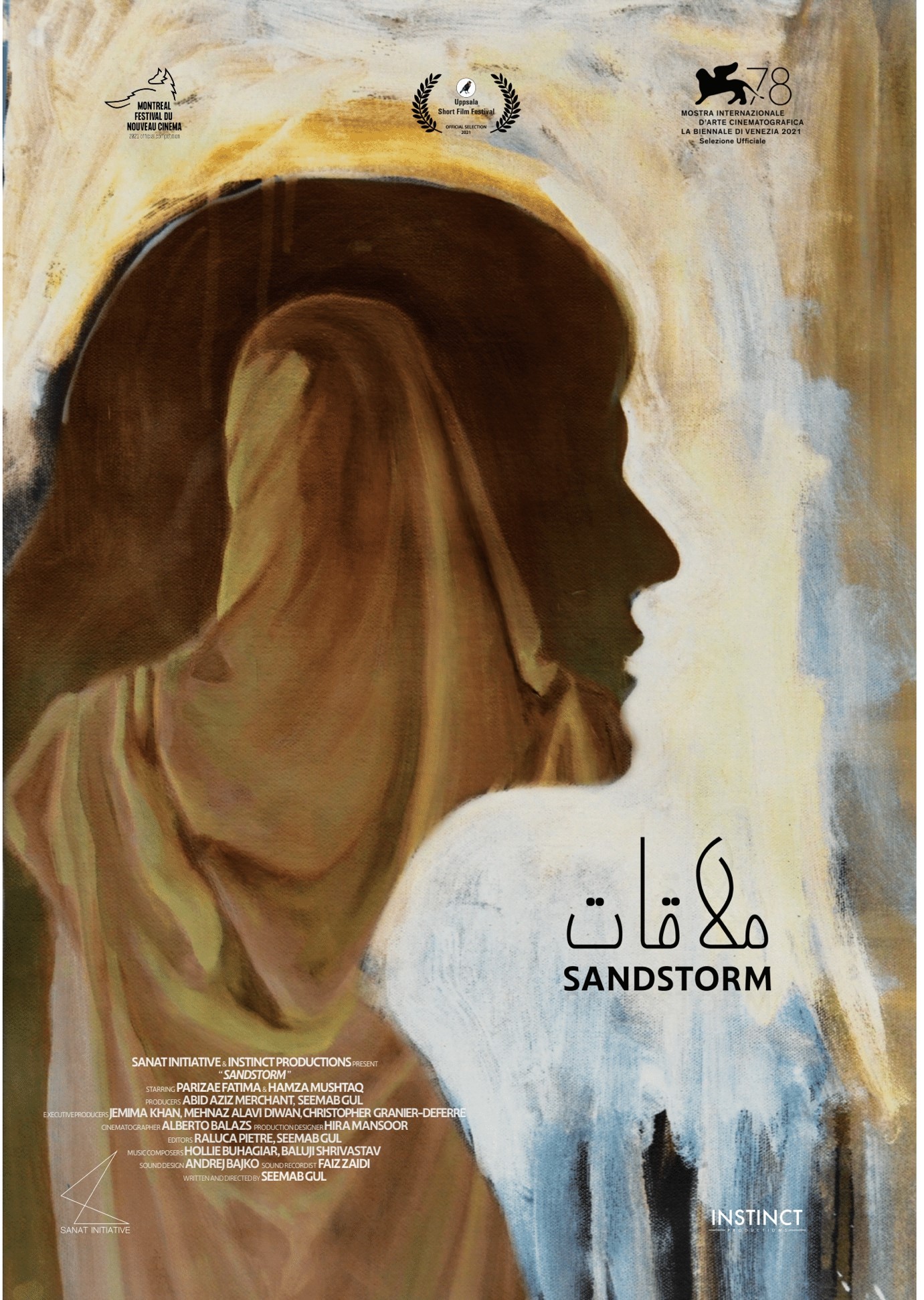
Oscar Qualifying Short Film Review “Sandstorm (Mulaqat)”
WATCH THE TRAILER HERE
First, the Recap:
Chasing what we desire. When we’re young, there is often the constant temptation to push boundaries, defy protocols, and bend the rules we find ourselves under, all to gain that which we so firmly believe is what we wish to obtain. Is it not more so an attempt to garner a sense of worth, being wanted, being cherished, even loved? The human heart is both amazingly affirming and dangerously vulnerable, and when it comes down to it, are the lessons to be learned grasped onto or ignored at our peril? For a beautiful schoolgirl in Karachi named Zara (Parizae Fatima), it will be all of this that is put to the test as she tempts the unknown via an online “relationship” with a man named Omar (Hamza Mushtaq). But when their seemingly innocent yet still enigmatic interactions spark an unsettling shift in events upon her making a rash choice, will Zara be able to make the right one to rectify it?
Next, my Mind:
Darkness takes on many a form that can draw us away from what is right towards a path that could assuredly be to our detriment. Yet, in those same moments of decision, there is also the room for a potent and compelling force that is simply the brave and true choice to follow the light of logical reason. This sounds awfully dramatic, but it IS this very tangible, wholly unsettling, ultimately redeeming dichotomy that forms the cornerstone narrative displayed through this short film from writer/director/producer/editor Seemab Gul, producer Abid Aziz Merchant, and executive producers Mehnaz Alavi Diwan, Christopher Granier-Deferre, and Jemima Khan which I had the honor to screen back in May during its Texas Premier as part of the Pakastani and Women’s Programming at the 2022 DFW SAFF and has now since continued moving forward to become a well-deserving Oscar qualifying effort for the upcoming 95th Academy Awards. It is a privilege to share these thoughts again in light of the potential for official nomination in December.
Presented through the experiences and initially poor, restless-minded decisions being made by a Karachi schoolgirl who finds herself enamored with a man she’s only met online, the portrait being painted is one of youthful naiveté, societal repressions (whether real or perceived), gender roles and the associated cultural stigmas/lack of freedom placed upon women, supposed “immodesty”, shame, humiliation, manipulation, the desire to feel wanted in body and soul, parental expectation, and the understandable level of rebellious energy that manifests within someone due to all of it. It also becomes a study in how we choose to view ourselves in the wake of all the pressures of being young while held to such restrictive overall “rules” that it almost begs for someone under that weight to discover the means to get out from under it, even if it could lead to more harm than good. The challenging of authority is addressed as well, another reflection of what burns within a “confined” state of reality.
The grander, often (sadly) disheartening and even flat-out disturbing plight of women in South Asian society is not remotely an unfamiliar one. What this critic absolutely respects and supports about film efforts like this is not only that it was written, directed, and produced by a woman, but the atmosphere created in the narrative speaks so deeply to the legitimately rising degree of female empowerment that is showing itself more and more within the filmmaking ranks and in the South Asian culture overall. Add this backdrop to the story’s illustration of looming, even predatory victimization (in context here, certain amounts of the portrayed circumstances are self-inflicted) being unflinchingly conveyed, it only makes how the effort’s finale is executed impact you all the more, believably grounded, thought-provoking, awareness-raising, and full of life’s valuable lessons.
A broader viewpoint of the story’s content can, as we all know very well in this world currently, broadcast volumes of cautionary subtext about the perils of the internet and social media realms and how they can be those questionable places to meet people if one is not using proper judgement or is too easily enticed via overt flattery. I fully appreciated the visual scope of this film in that, as with so many projects found within the independent cinema ranks, it focuses on real-world, relatable imagery to allow focus to remain on the narrative and characters from start to finish, which is accomplished here to excellent effect, especially during the aforementioned finale that so beautifully encapsulates what we’ve witnessed up to that point. Again, it’s the sheer actuality of what’s being presented and its applicability to our current world that makes the effort resonate, or SHOULD resonate, deeply as a viewer.
I was very much impressed with the acting capability showcased by Fatima through her role as Zara, a gorgeous schoolgirl residing in Karachi who at least acts like she’s on the cusp of the more complicated reality that is womanhood thanks to a mildly to blatantly angsty attitude that flies in the face of her traditional cultural norms and the subsequent gullibility and acting out that accompanies it. Having initiated contact with a man via the internet, her longing to speak to him daily has begun to take a turn towards meeting IRL, and it soon manifests a decision Zara makes that could capsize not just the “relationship” she treasures, but her own safety as well. As stated above, it culminates in a new series of choices that will define not just the endgame of the current circumstance, but her very outlook on who she is. It’s a beautifully presented performance by Fatima that lends absolute credibility to the character and her growing dilemma, deftly illustrating both vulnerability and the birth of a stronger, wiser woman.
Primary supporting roles arrive through Mushtaq as Omar, the man Zara has become highly connected to and who more than seems to be all smooth talk and niceties, but still leaves on questioning if other agendas could be in play once he beings trying to control the interactions more and more thanks to a bad choice on her part. The mystery of who he really is has to be mainly done via just hearing Omar’s voice, and I felt it’s a tribute to Mushtaq’s acting to make us feel that split sense of whether to trust him or not just by what the character says to Zara in their conversations. Ayesha Shoaib Ahmed arrives as Zara’s best friend Amna, who more than tries to be a voice of wisdom to Zara when her friend’s actions and demeanor start to swerve off course. Nabila Khan and Aun Ali Saleem are Zara’s mother and father, who’s evident strictness and traditionalism is evident even as Zara’s secret “romance” remains out of their sight. Additional appearances are made by Masuma Halai Khwaja and Qasim Ali.
So, in total, “Sandstorm” is a fully plausible, undeniably convincing representation of contemporary youth contained within a still-restrictive society and the means by which they may seek to “live” by breaking away from what is told to them as being “correct” and “proper”, especially as a girl/woman in a patriarchal arena. It shows us the dangers of trusting too easily while also appreciating the general notion of being appreciated by someone in a way not always immediately present but heavily sought after. In the end, is it a necessary morality tale we can all take a lesson from when it comes to just wishing to be SEEN and loved?
As always, this is all for your consideration and comment. Until next time, thank you for reading!
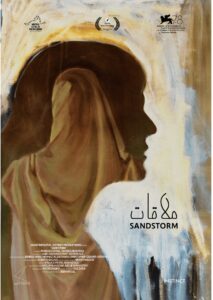
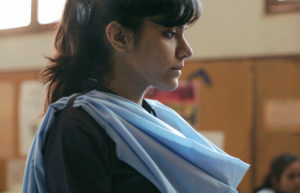

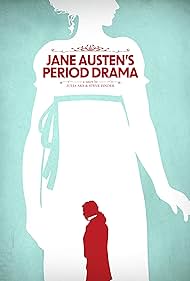
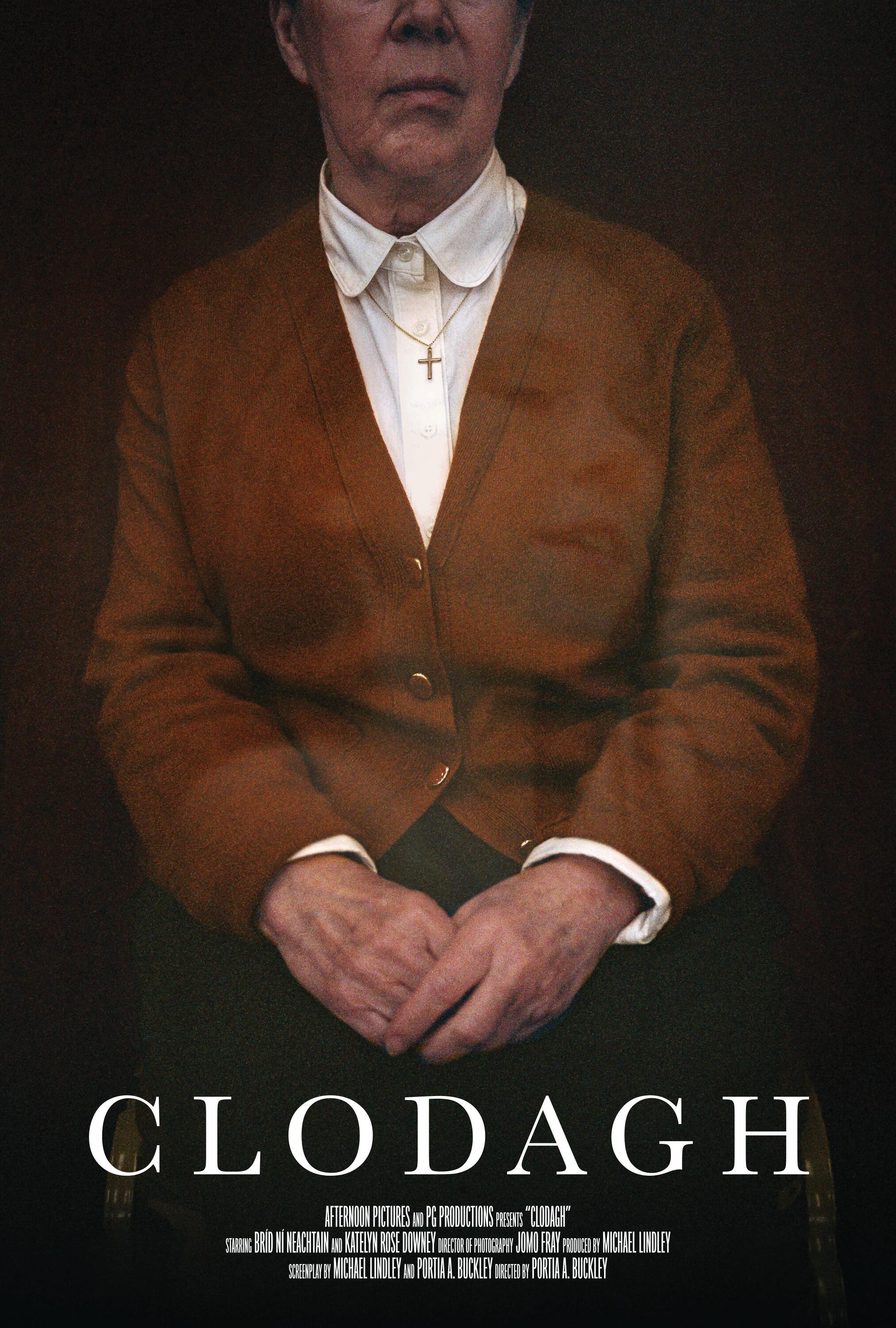
Fantastic work